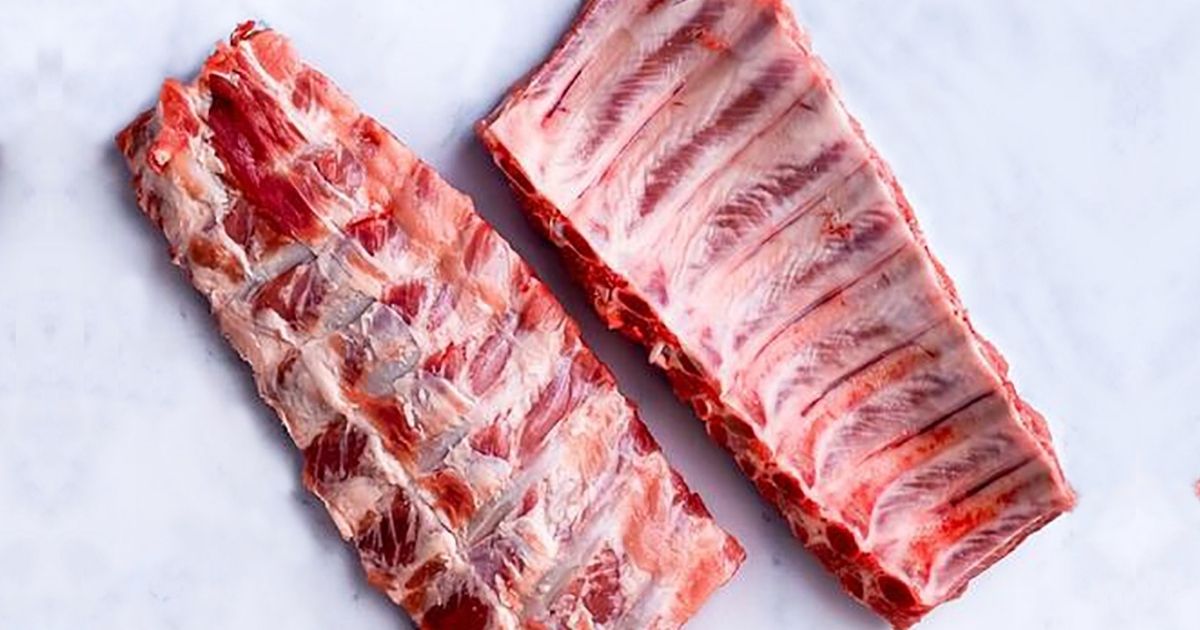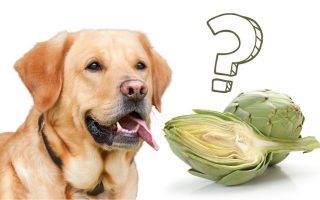You’ve cleared off your pork chop and your pooch is at the corner doing that thing again with those sad eyes and you’re wondering—can dogs eat pork rib bones?
Dogs and bones have always been placed on the same table.
From clichés like ‘the patient Dog eats the fattest bone’ to Spike in Tom and Jerry infatuated with a huge bone; it often seems like a bone is the best thing to give a canine.
However, some people would disagree, especially with pork rib bones.
According to the medical director of Best Friends Animal Society® Susan Konecny, “I do not recommend giving pork rib bones to your dog.”
Stephanie Liff, the owner of Pure Paws Veterinary Care of Clinton Hill Brooklyn, NY, further advises that “while pork itself is a fine protein source, the bones should be considered something dangerous and should be disposed of and not as a treat.”
Who should we believe, Hollywood or the experts?
You might want to hold on to your rib bone and ignore those sad-looking eyes (we know, that’s hard) to know if it’s safe to feed your dog a pork rib bone.
Do Pork Bones Have Nutritional Benefits?
One can’t deny that pork meat itself is filled with valuable nutrients, but what about the bone? Can we get something out of it?
The short answer is, yes.
Both humans and dogs can benefit from pork bones as it contains some valuable nutrients.
The first two important nutrients pork bones provide are iron and zinc. While these are also present in the meat, don’t count the bones out.
Iron and zinc are essential for the growth, development of the body, and strengthening of the immune system.
Pork bones also supply calcium, sodium, phosphorus, and magnesium. The bone marrow contains Vitamin A, which enhances eyesight and helps the cells.
Pork bones provide collagen, gelatin, and glycine, good for gut health and our immune system.
For dogs, in particular, pork bones help strengthen the teeth. It is also beneficial to digestion by boosting the saliva enzymes. A dog’s gums and skeletal system will need the nutrients of pork bones, too.
The nutrients aside, pork bone is a good pastime for dogs. Some owners give their dogs bones to calm them down and give them something to occupy their time.
This helps in both mental and physical stimulation and avoids behavioral issues that arise out of boredom.
Are Pork Rib Bones Safe for Dogs to Eat?
Pork rib bones do have their advantages, but the tail of the coin is something you must consider.
Before you give a dog pork rib bone, understand that it may have some negative effects, especially on dogs without strong jaws.
It is best to weigh the downsides with the benefits.
The problem with cooked rib bone
Cooked rib bones can break off while the dog is chewing, leaving splinters that can get into a dog’s throat and lead to choking.
It could also cause internal injuries, a situation you don’t want to face. These broken pieces can engender intestinal complications, leaving a dog in pain.
The problem with raw rib bone
The injury risk of cooked rib bones is not present in raw rib bones, and many consider it a better option.
Raw rib bones are softer and easier to chew. However, they may be hard for your dog to swallow and digest.
The problem with size
When the bone is too small, a dog may end up swallowing it completely. This may choke your dog, be difficult to digest, and lead to other issues.
A big bone is safer for a dog to play with, but a dog with sensitive teeth and gum may suffer from dental issues.
A big bone can also break into little pieces, creating further risk.
What Kind of Bones Are Safe for Dogs?
While pork bones have their challenges, the image of Spike chewing on bones is not unfounded.
Bones, in general, are beneficial to dogs. Getting a safer kind of bone will reduce the aforementioned risks.
Raw bones are considered safer than cooked bones because they don’t break with ease.
They are edible, though you shouldn’t let your dog swallow one whole. Bones meant for consumption should be well chewed.
The softest bones you can find are from animals like:
- Chicken
- Lamb
- Turkey
- Beef
Recreational bones are best gotten from bigger animals as they should not be swallowed. Ensure you handle the bones with care to avoid bacteria getting on them.
What if My Dog Eats Pork Ribs?
Pork rib meat poses no danger to your dog and is even beneficial. However, as we’ve seen, pork rib bone does more harm than good.
If your dog accidentally swallows a pork rib bone, he may be able to digest it, but it can also have effects. Some of these have already been mentioned, but there are additional distress symptoms like:
- Vomiting,
- Excessive drooling
- Blood in stool
- Loss of appetite
So what if your dog swallows a pork bone? The first course of action should be to take away whatever pieces of bone are left.
Observe your dog next to see if you detect any abnormal signs. If so, get him to the vet in time.
Better yet, dispose of every pork rib bone—and any other potentially harmful ones—in a place your dog cannot reach.
What Do You Do With Pork Bones?
While pork bones aren’t good for your dog, it doesn’t mean it’s a complete waste. You don’t have to reserve it for the trash.
There are recipes you can try out with pork bone as an ingredient. An example is pork bone broth.
The nutrients in pork bones needn’t be wasted. With some creativity and the internet at your disposal, you can benefit from it.
Are There Alternatives to Feeding Dogs Pork Bones?
Pork bones may not be suitable for your dog, but some other bones can be.
When uncooked, soft enough to chew, and large to avoid being swallowed whole, bones come with benefits.
They can also be for fun, but you can get chew toys if you don’t want any bone-related accidents happening. You can never be too careful.
FAQs
Can dogs eat cooked pork rib bones?
Cooked pork rib bones are not recommended for dogs as they may break up while your dog chews. The little pieces may cause injuries, lead to choking and bring about other internal problems. For your dog’s safety, do not feed him cooked pork rib bone.
Can dogs eat raw pork rib bones?
Raw pork rib bones are considered safer than cooked ones because they won’t break up. However, it can be hard for your dog to digest. Also, raw bones sometimes get contaminated, leading to bacterial infections.
Can dogs eat pork back rib bones?
While some dogs may handle it, pork back rib bones are not safe for dogs. The same applies to other forms of pork bones.
Is pork bones bad for dogs?
Pork bones have more downsides than benefits for your dog and are seen as unhealthy for canines. Best to abstain from giving a dog pork bone.
What bones do vets recommend?
When you want to feed your dog anything, it is best to go to a veterinarian for further advice. For bones, the vet does recommend getting uncooked ones that can fit a dog’s muzzle, so he won’t swallow it. Softer bones are also preferable.
The Bottom Line: Can Dogs Eat Pork Rib Bones?
The best answer is no.
However, pork bones are nutritious to both dogs and humans and can be an ingredient in some recipes.
But the risks are too high for you to offer one to a dog, especially when it’s cooked.
You might want to turn your eyes away from your dog’s pleading eyes and not offer him pork rib bones. Instead, throw your dog a chew toy.







